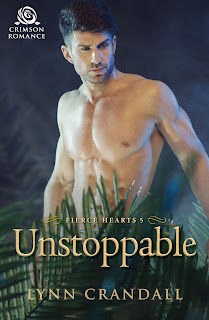Check my romance
novels covers and you’ll see that several of my paranormal romantic suspenses
boast a sexy, muscled man on the cover. I’m told this type of cover attracts
readers’ attention and sells well. It makes sense to me. Readers enjoy reading
romances for not only the pleasure of following development of relationships
but for romance and the characters made of hero material. I enjoy that, too,
about romances.
Masculinity in our
society is defined with physical, mental, and emotional aspects. Typically, the
hero is very strong, very fit and muscular, able to handle anything, and maybe
not have much need for emotions other than to love the heroine fiercely. He may
not be able to communicate very effectively, but he drives a heroine to ecstasy
with a delicious kiss. Although I feel the romance genre has expanded to define
heroes in more variety, “fantasy” of the super hero type, whether a cowboy,
werewolf, or billionaire, still dominates. I love them all.
But a couple things
have occurred that have made me consider what the impact may be of romantic
heroes who illustrate an idealized type of man who fits our society’s image of
masculinity. Maybe it’s just pure fun and we all know that. Or maybe it frames
a context for how we expect males to behave.
I began my marriage
to my husband with the desire to be taken care of. I worked at a well-paying
job. I was a grown woman who believed in strong women. But deep down I held an
idea of what my husband should be for my children and me. After some intense
inner work, I had a shift in how I saw my husband. In fact, I told him I didn’t
need or want him to be a superman. It was more important to me that I see who
he really was and love him for that. It took him back a bit.
I had grown to
treasure who he was in truth over an idealized man, and who he was was so much
more than a superman because it was real. He was much more fascinating and we could
become truly engaged in meaningful ways when I could allow that to happen.
Beyond being the
wife of a good man, I’m the mother of three sons. When I’ve heard women over
the years make remarks about how stupid men are or how insensitive they are, I
have quietly disagreed in the blanket statement. My sons are individuals, not
blanket statements. With that in mind, I have tried to write heroes who have
humanity in them, who try to engage with heroines in meaningful and healthy
ways. Of course, I’m writing romances, so these male characters also have the
attributes readers, and I, enjoy in our heroes. I want to write well-rounded,
maybe quirky, heroes with inner conflicts real people face, but with sex appeal.
The other thing
that occurred recently to make me consider how I illustrate masculinity was
watching the documentary, The Mask You Live In. It was created by the
The Representation Project and it shines
a light on what it’s like to grow up male in a society that tells young boys
they need to be tough, invincible, and tears-free, no matter the occasion.
According the project’s website, “The Mask You Live In follows
boys and young men as they struggle to stay true to themselves while
negotiating America’s narrow definition of masculinity.” It’s very enlightening
and at the same time heart-breaking.
This is a very serious topic. Where’s the fun here? It’s just food for thought. And I’d
love to know yours.
Published first in my newsletter, In My Backyard.


3 comments:
Great post, Lynn! Thanks for sharing.
Thank you, Angela! I'm glad you stopped by.
Thought provoking. Thank you, and Happy Birthday!
-R.T. :)
Post a Comment